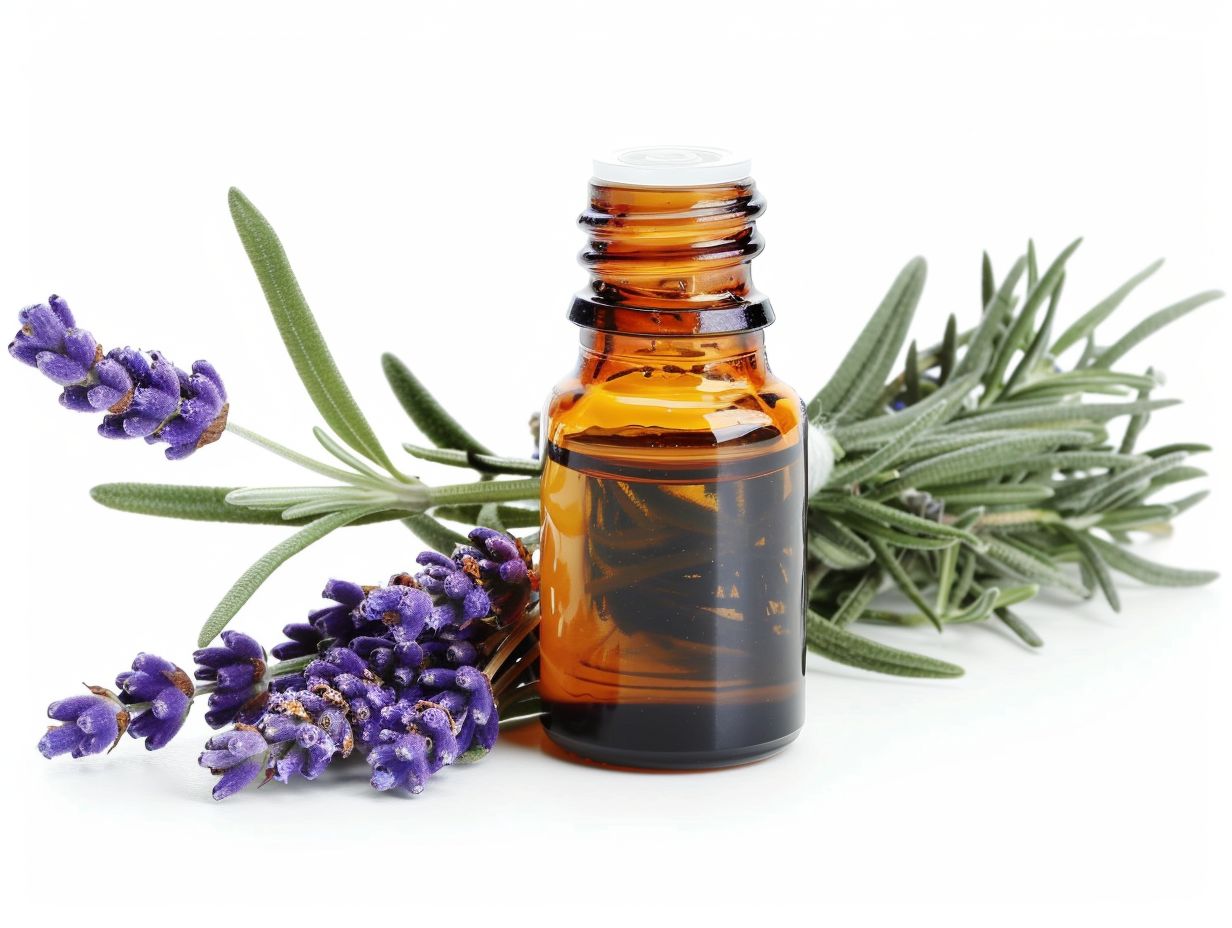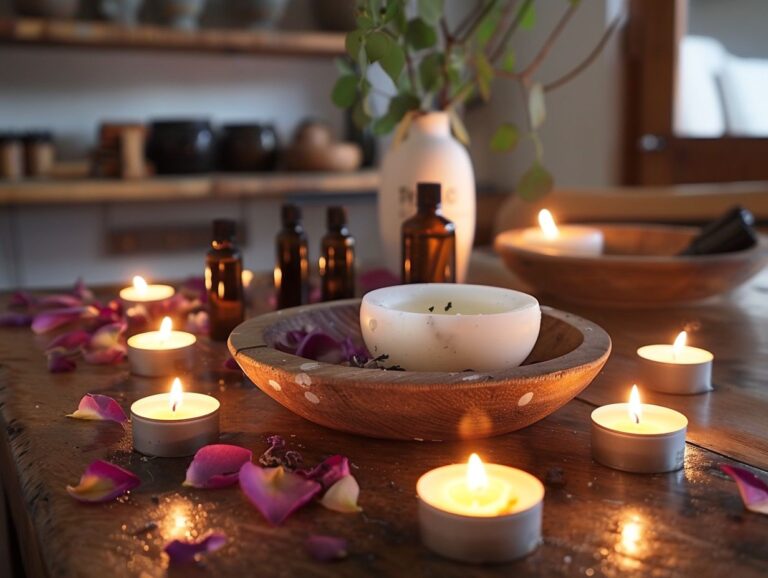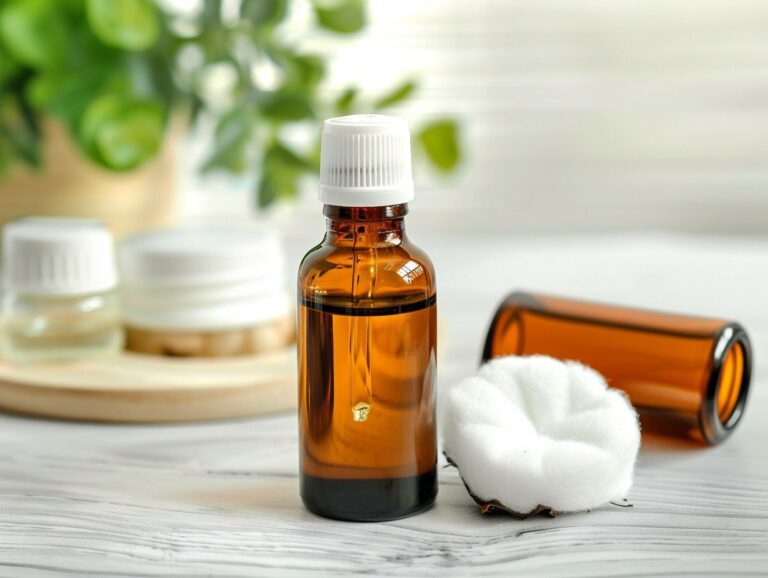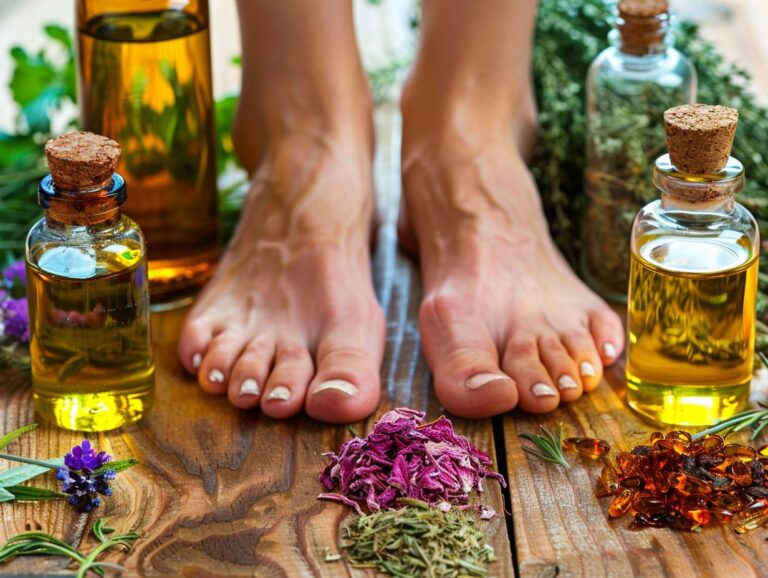Can You Eat Lavender Essential Oils
Interested in the world of essential oils and their potential benefits? Curious about whether it’s safe to ingest lavender essential oil and how you can incorporate it into your cooking?
This article will explore the uses and risks of lavender essential oil, including its benefits, possible side effects, recommended dosages for ingestion, and eating essential oils safety precautions when using it in cooking.
Discover the differences between culinary and therapeutic grade lavender oil, as well as alternative ways to incorporate lavender into your diet. Let’s dive in!
Key Takeaways:
What Are Essential Oils?
Essential oils are highly concentrated plant extracts that capture the aromatic essence of the plant. These oils are extracted from various parts of plants, including flowers, leaves, stems, and roots, through processes like distillation or cold pressing.
Once extracted, these oils contain a high concentration of phytochemicals, which are responsible for their therapeutic properties. Their potency is such that a small amount can have a significant impact. These essential oils find versatile applications across industries, ranging from aromatherapy, skincare products, to natural health remedies.
In aromatherapy, oils like lavender are commonly used for their calming effects, while in skincare, they are praised for their ability to address various skin concerns. The captivating fragrances of essential oils also make them popular in the fragrance industry, used in perfumes and scented products.
What Is Lavender Essential Oil?
Lavender essential oil is a popular essential oil derived from the lavender plant, known for its calming aroma and versatile uses.
Lavender, with its delicate purple flowers, has been used for centuries in different cultures for its therapeutic benefits. Cultivation of lavender requires well-drained soil and plenty of sunlight to thrive. The process of distilling lavender essential oil involves extracting the oil from the flowers through steam distillation.
Health benefits of lavender essential oil include its ability to reduce stress, promote relaxation, and improve sleep quality. It is a natural remedy for anxiety management and is often used in aromatherapy practices.
What Are The Benefits Of Lavender Essential Oil?
Lavender essential oil offers a myriad of health benefits, ranging from stress relief and anxiety management to promoting better sleep and relaxation. The phytochemicals present in lavender oil contribute to its therapeutic properties, making it a versatile remedy for various ailments.
Research has shown that lavender essential oil can act as a natural sleep aid by inducing relaxation and improving sleep quality. In addition, its anti-inflammatory and antimicrobial properties make it beneficial for skin health, aiding in conditions like acne and eczema. Lavender oil has been utilized for centuries for its medicinal use, showcasing its efficacy in treating headaches, migraines, and even minor burns.
Is It Safe To Ingest Essential Oils?
The safety of ingesting essential oils is a topic of debate, with considerations such as purity, dosage, and individual tolerance playing crucial roles. The FDA regulates essential oils, but caution is advised when consuming them internally.
Poisoning can occur when essential oils are ingested in large quantities, as they are highly concentrated substances. Research has indicated potential risks of toxicity, especially in children and pets due to their smaller bodies. It is essential to dilute essential oils properly and seek guidance from a healthcare professional before internal use. Some oils can interact with medications, exacerbate certain conditions, or cause allergic reactions. Therefore, understanding the regulations and conducting thorough research is paramount to ensure the safe consumption of essential oils.
What Are The Risks Of Ingesting Essential Oils?
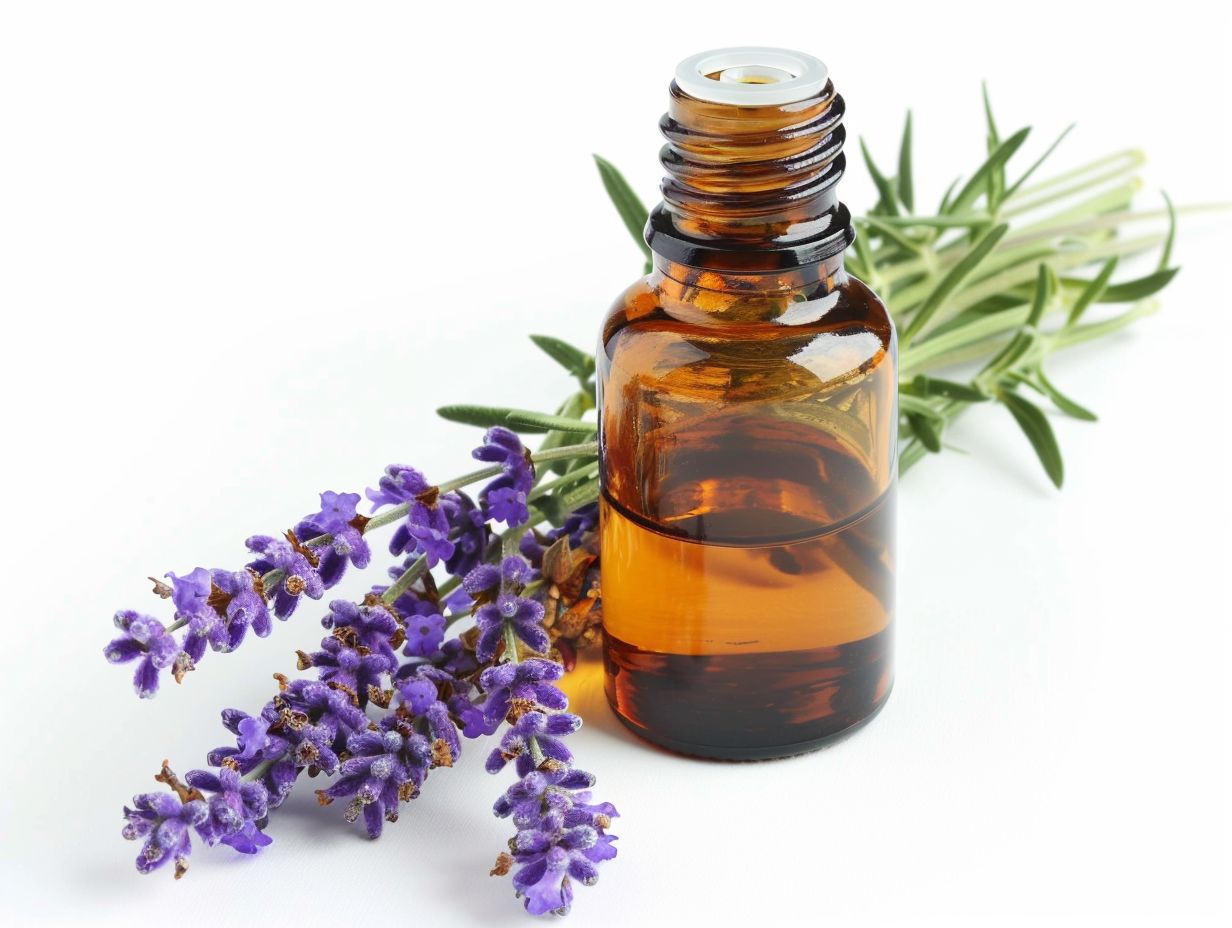
When essential oils are ingested, they can lead to a range of adverse reactions, including nausea, vomiting, and in severe cases, organ damage.
Essential oils are highly concentrated substances that can cause skin reactions if not properly diluted. Ingesting oils that contain pesticides or impurities can also result in poisoning.
It is crucial to note that certain essential oils should never be ingested, especially by children, due to their potential to cause harm and trigger toxic effects on their delicate systems.
What Are The Recommended Dosages For Ingesting Essential Oils?
Determining the recommended dosages for ingesting essential oils is crucial to prevent adverse effects and ensure safety. Dosage guidelines vary based on factors like age, health condition, and the specific oil being used.
Regarding medicinal use of essential oils, it is essential to consult with a qualified healthcare professional for personalized recommendations. Side effects can occur if the dosage is not appropriate, and some oils may even be toxic when ingested in high amounts.
For adults, the general rule is to start with a low dose and gradually increase as needed, but always staying within the recommended limits. Children and elderly individuals may require lower doses due to their body’s sensitivity.
Can You Eat Lavender Essential Oil?
While lavender essential oil is used in culinary applications for flavoring, it is essential to use it sparingly and ensure it is food-grade and safe for consumption. The use of lavender oil in cooking should be limited and carefully monitored.
Lavender essential oil, with its floral and herbaceous notes, can add a unique and delicate flavor to both sweet and savory dishes. When using it in cooking, remember that a little goes a long way due to its potent fragrance. It is crucial to opt for high-quality lavender essential oil to guarantee purity and avoid any synthetic additives.
Ensuring the proper dosage control is vital to prevent overpowering the dish with a medicinal taste. Its antimicrobial properties make it not only a flavorful addition but also a functional one, helping to preserve food naturally.
What Are The Possible Side Effects Of Eating Lavender Essential Oil?
Consuming lavender essential oil can lead to potential side effects, including digestive issues, allergic reactions, and toxicity symptoms. It is crucial to be aware of the possible adverse effects and discontinue use if any negative reactions occur.
Some common digestive reactions to lavender essential oil consumption include stomach pain, nausea, vomiting, and diarrhea. Allergic responses may manifest as skin irritations, rashes, or even difficulty breathing in severe cases. Toxicity symptoms from ingesting lavender oil may include dizziness, confusion, and muscle weakness.
Excessive intake of lavender essential oil can disrupt the endocrine system, affecting hormone levels and potentially leading to hormonal imbalances. It is important to note that regulations surrounding the internal use of essential oils vary, and it is advisable to consult a healthcare professional before consumption for safety guidance.
How Can You Use Lavender Essential Oil In Cooking?
Lavender essential oil can be incorporated into cooking in small quantities to add a floral and aromatic flavor to dishes. It is commonly used in baking, desserts, and savory dishes to enhance the overall taste profile.
When using lavender essential oil in recipes, it is crucial to remember that a little goes a long way due to its potent nature. Some popular applications include adding a few drops to cake batter, whipped cream, or even salad dressings for a unique twist. The benefits of lavender extract extend beyond flavor; it can also impart a calming and soothing aroma to the dishes. Experimenting with different ways of use, such as infusing lavender oil in syrups or marinades, can open up a world of culinary possibilities.
What Are The Alternatives To Eating Lavender Essential Oil?
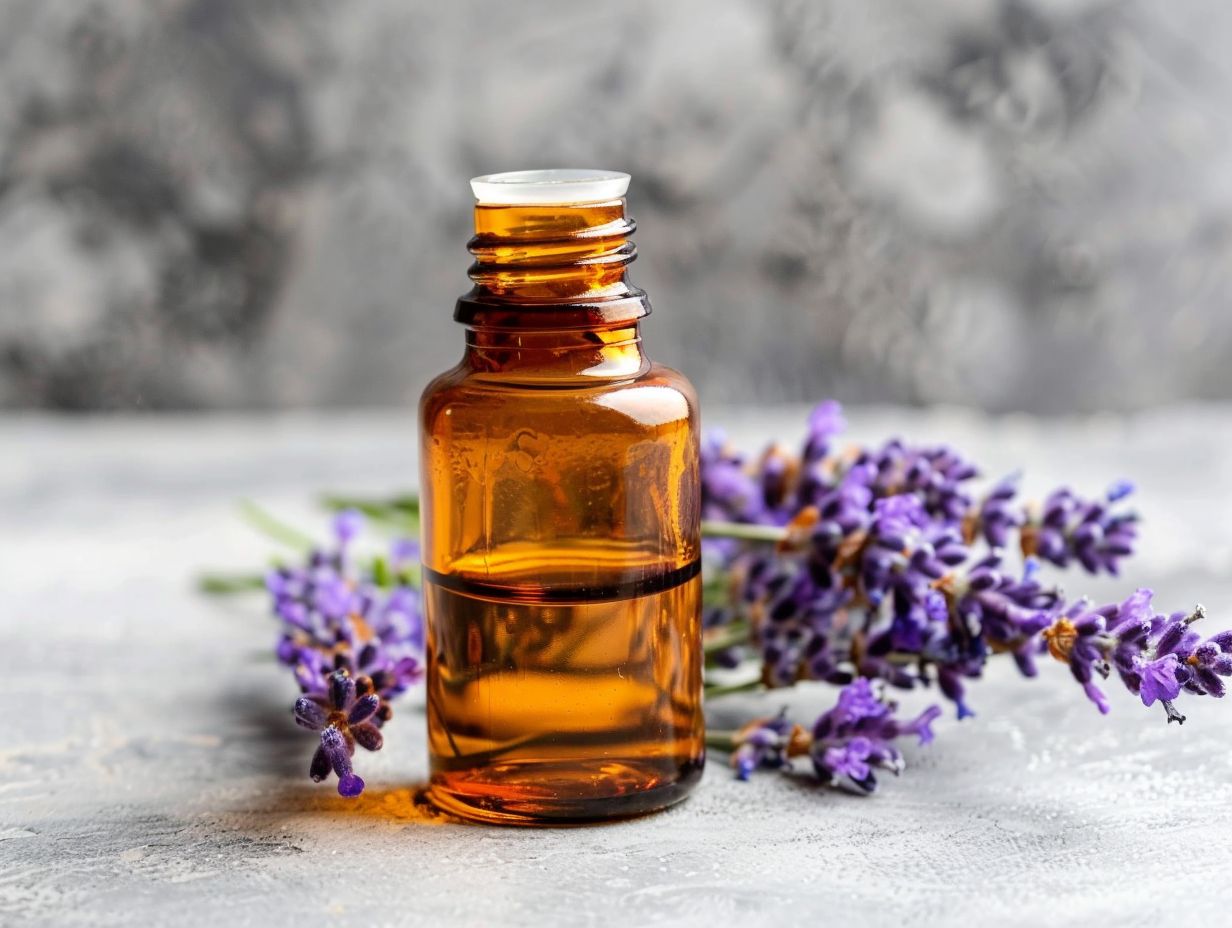
For those looking to add a subtle hint of lavender to their culinary creations, incorporating lavender extract can be a versatile choice. Whether it’s infusing syrups, baking delicate cakes, or creating refreshing beverages, lavender extract imparts a delicate floral essence that enhances both sweet and savory dishes.
Similarly, dried lavender flowers offer a visually appealing element to dishes while providing a gentle fragrance and taste. Sprinkle them over salads for a pop of color and flavor, mix them into homemade spice blends, or steep them in teas for a soothing beverage.
What Are The Benefits Of Using Lavender Extract Instead?
Using lavender extract in cooking offers similar floral notes and aromas as lavender essential oil but in a less concentrated form. Lavender extract provides a subtler flavor profile and is ideal for flavoring dishes without overwhelming the palate.
Unlike lavender essential oil, which can be toxic if ingested in high quantities due to its concentration, lavender extract is safer for culinary use. Its milder flavor makes it more versatile in various recipes, such as desserts, beverages, and savory dishes. Lavender extract can be used in a wider range of doses, allowing for more control over the intensity of the flavor it imparts. Its medicinal properties, including calming effects and potential anti-inflammatory benefits, make it a valuable addition to both cooking and wellness practices.
What Are The Different Ways To Incorporate Lavender In Your Diet?
There are numerous creative ways to include lavender in your diet, such as infusing lavender into syrups, making lavender-infused salts, or incorporating lavender in salad dressings and desserts. These innovative methods add a unique floral touch to dishes.
One health benefit of incorporating lavender into recipes is its potential soothing effects, which can aid in relaxation and stress reduction. It is important to note, however, that some individuals may experience skin reactions to lavender, so it’s advisable to test small quantities first. Lavender is generally recognized as safe by the FDA for its culinary use, but as with any ingredient, moderation is key to enjoying its subtle and fragrant flavor profiles.
What Are The Safety Precautions When Using Lavender Essential Oil In Cooking?
When using lavender essential oil in cooking, it is essential to dilute it properly, start with small amounts, and ensure it is food-grade. Individuals with allergies or sensitivities should exercise caution when introducing lavender oil into their diet.
One crucial aspect of safely using lavender essential oil in culinary creations is the method of dilution. It is recommended to mix it with a carrier oil such as olive or coconut oil to reduce the concentration and prevent potential skin reactions. Dilution ratios vary, but a common guideline is around 1-2 drops of essential oil per tablespoon of carrier oil.
Plus dilution, ensuring the lavender oil used is of high quality is paramount. Look for oils that are pure and organic, as inferior quality oils may contain additives that can be harmful when ingested.
What Are The Different Types Of Lavender Essential Oil?
There are several varieties of lavender essential oil, with English lavender (Lavandula angustifolia) and Spike lavender (Lavandula latifolia) being among the most common. Each type offers unique aroma profiles and potential therapeutic benefits.
English lavender, also known as true lavender, is prized for its sweet, floral scent, making it a popular choice for relaxation and stress relief.
On the other hand, Spike lavender, with its camphoraceous and herbaceous notes, is often used for respiratory support and pain relief.
While English lavender is preferred in aromatherapy for its soothing properties and ability to promote sleep, Spike lavender is valued for its anti-inflammatory and antimicrobial properties, making it ideal for skin care and muscle relaxation.
What Are The Differences Between Culinary And Therapeutic Grade Lavender Oil?
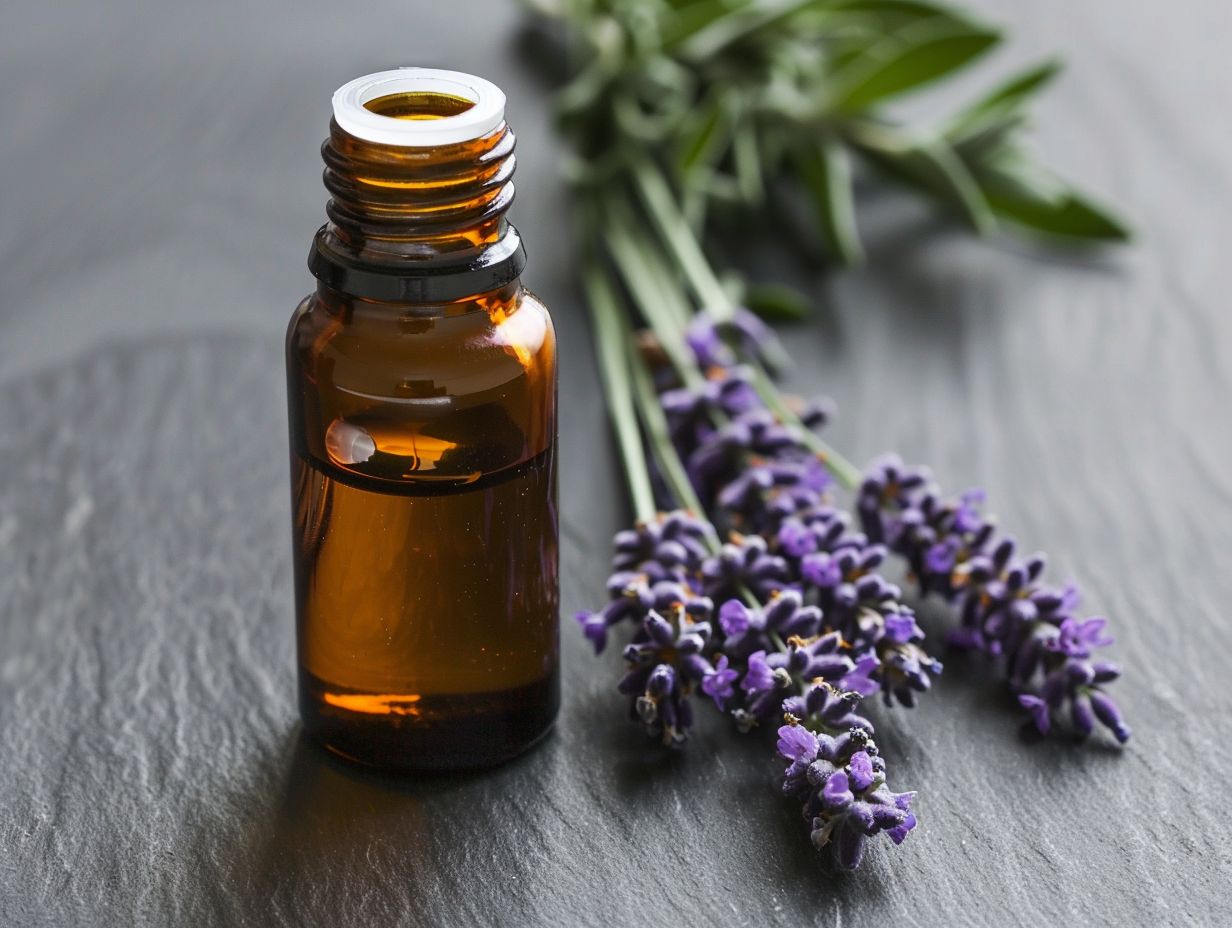
The distinctions between culinary and therapeutic grade lavender oil lie in their intended uses and quality standards. Culinary-grade oils are suitable for flavoring foods, while therapeutic-grade oils are often used for aromatherapy and topical applications.
Regarding quality criteria, therapeutic-grade lavender oil undergoes more stringent testing to ensure purity and potency, meeting specific industry standards. These oils are often sourced from regions known for producing high-quality lavender with optimal therapeutic properties. Therapeutic-grade oils are commonly used in healthcare settings, massage therapy, and natural wellness practices due to their stronger concentration and potential health benefits.
Frequently Asked Questions
Can You Eat Lavender Essential Oils?
Yes, you can eat lavender essential oils, but it is not recommended.
What is Lavender Essential Oil?
Lavender essential oil is a concentrated oil extracted from the flowers of the lavender plant.
Is Lavender Essential Oil Safe to Ingest?
While lavender essential oil is generally safe for ingestion, it is important to dilute it properly and use caution.
What are the Benefits of Ingesting Lavender Essential Oil?
Ingesting lavender essential oil has been linked to reducing stress and anxiety, improving sleep quality, and relieving digestive issues.
How Should Lavender Essential Oil be Ingested?
Lavender essential oil can be ingested in small amounts by mixing it with a carrier oil or adding a few drops to food or beverages.
Are There Any Risks to Eating Lavender Essential Oils?
Ingesting large amounts of lavender essential oil can be toxic, so it is important to consult with a healthcare professional before consuming it and to use it in moderation.

